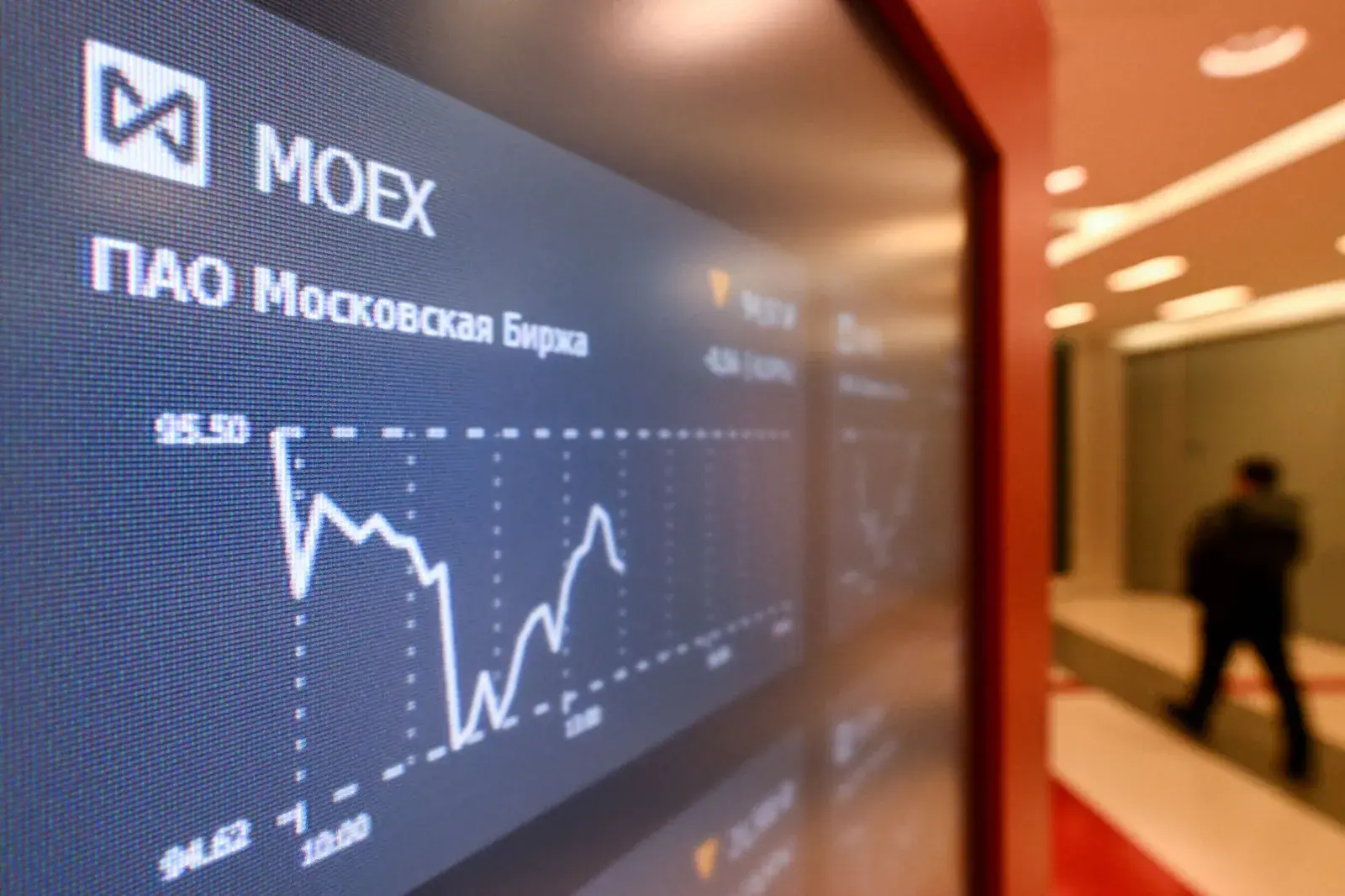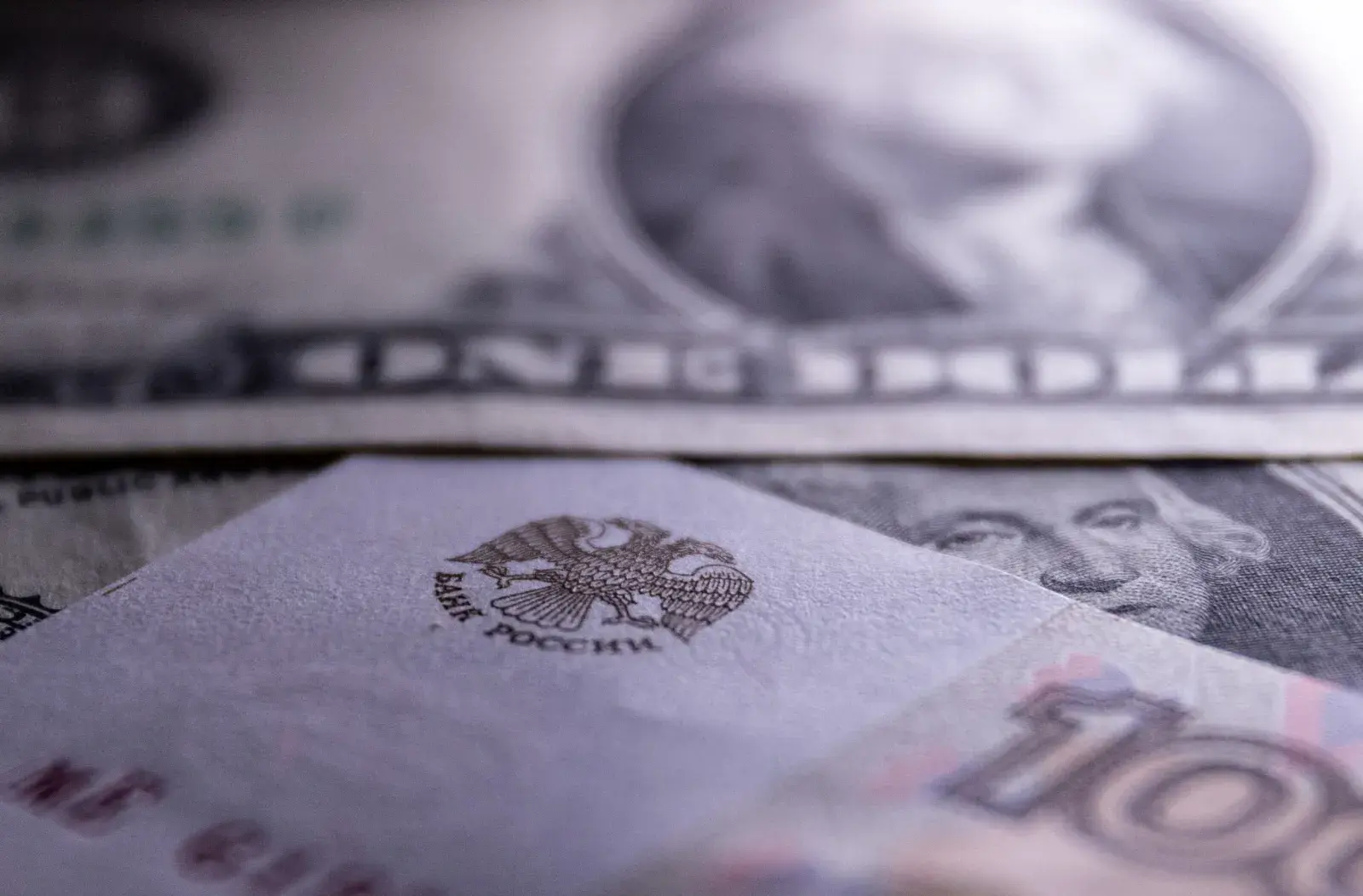Stocks in Russia's markets and the ruble, the country's currency, are strengthening amid engagements between Moscow and Washington regarding potential peace talks for the war in Ukraine.
The Moscow Exchange (MOEX) and the dollar-denominated RTS index rose on Monday, while the ruble hit a seven-month high against the dollar, fueled by optimism that the Trump administration may ease sanctions on Russia.
Since December 17, the MOEX has climbed over 800 points, while the New York Stock Exchange (NYSE) has dipped nearly 300 points.
Newsweek reached out to the Russian Finance Ministry for comment.
Why It Matters
The United States and European Union sanctions imposed after President Vladimir Putin's full-scale invasion of Ukraine were aimed at isolating Russia from the world's financial system.
The measures have caused turbulence in Russia's economy, with high inflation and worker shortages. However, the prospect of Russian markets improving could play into Putin's hands as he seeks to fund his war machine.

What To Know
Upon opening on Monday, the MOEX index rose 1.71 percent to surpass 3,249 points, up 865 points from the 2,384 it registered on December 17.
In the same time frame, the NYSE was 19,223 at opening on Monday—294 points less than the 19,517 registered on December 17.
As of Monday, Russia's dollar-denominated RTS index climbed 1.71 percent to exceed 1,196 points. This marks weeks of steady gains, driven by optimism ahead of a phone conversation that U.S. President Donald Trump said he would have with Putin last week amid speculation about Washington-led calls for a ceasefire in Ukraine.
On Monday, the ruble reached 84 to the dollar, its strongest level since August 5. It has surged almost a third since the start of the year.
As speculation mounts that Trump's efforts to restore ties with Putin mean an easing of sanctions, hedge funds are positioning themselves for potential gains in Russian corporate bonds and the ruble, Financial Times reported.
Timothy Ash, an emerging markets strategist at BlueBay Asset Management, told Newsweek that there is excitement amongst some investors about trading with Russia again among those who have forgotten about accusations of Russian war crimes in Bucha, Ukraine.
However, it is unclear how Europe will respond if the U.S. eases sanctions on Russia. Ash said the sanctions staying in place will present a regulatory minefield around trading with Russia, raising questions about how U.S. banks with European operations can manage the rules set by different regulators.
Sanctions have meant that trading in Russian sovereign debt remains off-limits, but some hedge funds are exploring corporate bonds once deemed nearly worthless, which are seeing improved valuations, according to Hedgeweek.com.
The outlet added that hedge funds and brokers are looking at sanctions-compliant ways to profit from the shifting geopolitical landscape involving Russia.

Vasily Astrov, a senior economist at The Vienna Institute for International Economic Studies, told Newsweek that a thaw in Russia-U.S. relations and the net effect of a peace deal could lead to more capital inflows to Russia.
It might also persuade Western companies "sitting on the fence" to stay in Russia and those that have already left to potentially return.
Astrov also said that new U.S. investments in Russia, such as in energy production and metals, may materialize in the new geopolitical climate, reducing Moscow's one-sided dependence on China.
He said it was notable that the U.S. Chamber of Commerce in Moscow had reportedly been in contact with the Russian Industrial Union, discussing the potential easing of sanctions, particularly in the financial and aviation sectors.
At the first U.S. meeting in Riyadh in February, there was talk of strengthening economic ties, and Astrov said it was no coincidence that Kirill Dmitriev, head of the Russian Direct Investment Fund, attended the meeting.
What People Are Saying
Financial Times: "Investors are turning to sanctions-proof bets on Russian bonds and the roble to wager that Donald Trump's rapprochement with Vladimir Putin will send a wave of capital back into Russia's economy."
Vasily Astrov, a senior economist at The Vienna Institute for International Economic Studies, told Newsweek: "There has been a sense of euphoria in the Russian financial markets recently and yes, if the U.S. sanctions are eased (and/or) lifted, this optimism would be very much justified."
Astrov added: "A thaw in Russia-U.S. relations might persuade companies who were 'sitting on the fence' to stay in Russia and those who have already left to potentially return...the net effect of a peace deal would be rather more capital inflows to Russia."
Timothy Ash, an emerging markets strategist at BlueBay Asset Management, told Newsweek: "Certainly there is excitement amongst sone investors about trading Russia again—they seem to have quickly forgotten Bucha. Evidently ESG (environmental, social and governance principle) is a pick and mix concept for these investors."
What Happens Next
Speculation that sanctions against Russia could be eased has fueled investor interest in Russian assets, but sanctions on Russian banks and financial intermediaries mean that direct trading of the ruble remains difficult.
Meanwhile, the ruble's strength could influence the central bank's upcoming policy decision. On March 21, the Bank of Russia will review its key interest rate, which currently stands at 21 percent.
Update 03/17/25, 12:53 p.m. ET: This article was updated with comment from Timothy Ash and further comment from Vasily Astrov.















